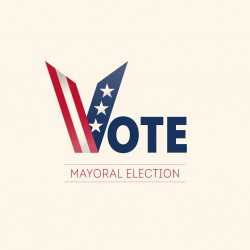The 4th Ward's Sophia King would do a fantastic job as mayor of Chicago. She takes a medium ground between Brandon Johnson's "therapy not trauma" strategy, which would use fewer officers, and Willie Wilson's law-and-order directive to "hunt them down like a rabbit." King wants the federal consent decree to be enforced against the police department and more officers.
During the WGN debate on January 19, King said, "We can empower cops and hold them accountable." "Safety and justice are both possible."
King is a leader "who can transcend the city's ethnic and ideological differences," as I stated after that discussion. (King loved that saying so much that she included it in her TV commercial.) King is the appropriate choice if you want to swap out a Black woman who can't get along with the City Council for a Black woman who can.
On February 28, I won't cast my vote for King, though. Why? her inability to prevail. King has only raised $545,000 over the past year, which is only a 10% of Mayor Lightfoot's $5.1 million total. She received 1% of the vote in a recent survey conducted by the Chicago Sun-Times/WBEZ/Telemundo Chicago/NBC5 and tied for last place. I'll cast my vote for a candidate who has a chance of winning the runoff rather than on my gut feeling.
From the right, here’s A.J. Manaseer, who tweeted: “With Vallas leading poll and poll and seemingly a lock to make the runoff, and with Lori neck and neck with Johnson/Chuy, does it make sense to vote strategically for Lori in this round to help prevent anyone left of her (ie Johnson and arguably Chuy) from making the runoff?”
From the left, here’s Stephanie Skora, author of the progressive Girl, I Guess Voter Guide: “In a world without Brandon Johnson running, Kam [Buckner] would have my full support. But as it stands right now, he doesn’t have the money, the endorsements, or the electoral experience to win a tough race (in fact, he’s never faced a real opponent in an election). Brandon has all those. What Kam DOES have is a base of progressive supporters, who could be the difference between Brandon in the runoff, and a runoff featuring Vallas/Wilson/Lightfoot. 2-4% is a lot. We need every single progressive in Chicago to get behind Brandon, & that includes Kam at this point.”
Chicagoans, we shouldn’t have to settle for our second or third choice in the marketplace of politicians. And we wouldn’t have to if we elected our mayors using ranked-choice voting. Earlier this month, 47th Ward Ald. Matt Martin introduced a resolution asking the City Council to hold a hearing on ranked-choice voting, which was just adopted by Evanston, and has already been used to elect mayors in New York, San Francisco, Oakland, and Minneapolis.
As Martin told Block Club Chicago, ranked-choice voting would eliminate the need for Chicagoans to compromise themselves by voting strategically, then leaving the polls feeling icky, dispirited and disgusted with a political system that offers only binary choices dictated by wealthy political donors and our lax campaign finance laws.
“They can vote for the person, rank them their number one, who they are most excited about,” Martin said. “But then if there’s a different person who they would also be excited about, albeit a little less, they can list them as number two. So we’d have fewer situations at the end of the day of folks who aren’t excited about the only choice they have at the ballot box.”
A ranked-choice election works like this: If no candidate receives a majority of first-place votes, the one with the fewest is eliminated. The second-choice picks on those ballots are distributed to the remaining candidates. If there’s still no one with a majority, the process repeats, with the next-lowest candidate eliminated and the highest-ranked survivor on each of those ballots getting those votes. This continues until someone receives a majority.
If this were a ranked-choice election, I could list King first on my ballot, followed immediately by a more viable candidate, who would get my vote once King was eliminated. (Who knows? If enough voters were comfortable with King’s middle-of-the-road positions, she might not be eliminated. She might be elected, as a consensus candidate.) Skora could vote Buckner first, Johnson second.
Chicago has never been in the vanguard of electoral or political reform. But in the words of a Canadian politician, “Courage, my friends; ’tis not too late to build a better world.” Or a better way of electing a mayor.

